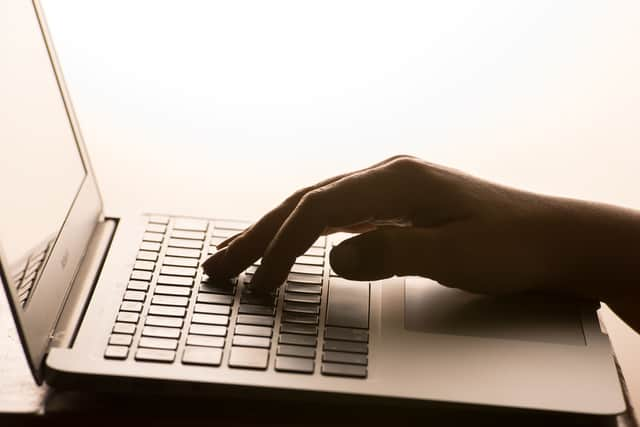What is a deepfake? Meaning explained - as sharing fake pornographic videos to be illegal in England and Wales
and live on Freeview channel 276
A new law is set to make the sharing of pornographic “deepfake” images an illegal offense in England and Wales.
An amendment to the Online Safety Bill means police and prosecutors will be given more power to bring the “vile” abusers to justice, the government has announced. Those who share digitally altered images without consent could be jailed under the proposed changes.
Advertisement
Hide AdAdvertisement
Hide AdThe Ministry of Justice will also bring forward laws to tackle the installation of equipment, such as hidden cameras, to take or record images of someone without their consent. This will include “downblousing” – where photos are taken down a woman’s top.
Justice Secretary Dominic Raab said: “We must do more to protect women and girls, from people who take or manipulate intimate photos in order to hound or humiliate them. Our changes will give police and prosecutors the powers they need to bring these cowards to justice and safeguard women and girls from such vile abuse.”
Figures show around one in 14 adults in England and Wales have experienced a threat to share intimate images, with more than 28,000 reports of disclosing private sexual images without consent recorded by police between April 2015 and December 2021. The Law Commission had called for the changes, saying criminal offences had not kept pace with technology and failed to protect all victims, while perpetrators evaded justice.
What is a deepfake?
A “deepfake” is a bit like a photoshop. Except an artificial intelligence is used to manipulate a picture or video, creating a fake.
Advertisement
Hide AdAdvertisement
Hide AdIt can be as innocent as making it look like Jon Snow is apologising for the ending of Game of Thrones. However deepfakes can more sinister in nature.
Explicit images or videos can be manipulated to look like someone without their consent and then be shared online. Under the proposed change in law, it will be illegal to share pornographic deepfake images.


What is downblousing?
Downblousing is when hidden cameras are used to take photos down a woman’s top. The term is similar to upskirting - which was recently made a criminal offence.
Under the planned ammendment to the Online Safety Bill, downblousing would also be made illegal alongside sharing explicit deepfake images or videos.
Why is the change in law needed?
Advertisement
Hide AdAdvertisement
Hide AdDomestic Abuse Commissioner, Nicole Jacobs, said: “I welcome these moves by the government which aim to make victims and survivors safer online, on the streets and in their own homes. I am pleased to see this commitment in the Online Safety Bill and hope to see it continue its progression through Parliament at the earliest opportunity.”
Culture Secretary Michelle Donelan said: “Through the Online Safety Bill, I am ensuring that tech firms will have to stop illegal content and protect children on their platforms, but we will also upgrade criminal law to prevent appalling offences like cyberflashing. With these latest additions to the Bill, our laws will go even further to shield women and children, who are disproportionately affected, from this horrendous abuse once and for all.”